Associate researchers

Dr Anita Archer
Postdoctoral Research Fellow, Enlightenment, Romanticism, and Contemporary Culture Research Unit, Faculty of Arts, the University of Melbourne
Anita Archer is an art historian whose research focus is contemporary art markets, with interest in the changing dynamics of primary and secondary markets, the evolving domination of multinational auction houses and the networked activities of art world intermediaries in the translocation of art globally. Anita’s PhD thesis examined the emerging market for Chinese Contemporary Art in the West and her recent focus is the role of Singapore as an art market hub for Southeast Asia. Anita’s research interest stems from her extensive work experience in the global art field as an international auctioneer and independent art consultant specialising in Asian contemporary art.
Email: anita.archer@unimelb.edu.au
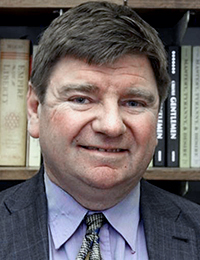
Professor Trevor Burnard
Associate Director, Enlightenment, Romanticism, and Contemporary Culture Research Unit; Professor, Wilberforce Institute for the Study of Slavery and Emancipation, University of Hull
Trevor Burnard is a scholar of early American, imperial, world and Atlantic history, with a special interest in plantation societies in the New World and their connections to eighteenth-century modernity. Particular interests include slavery, social history and demography, imperialism, economic and business history, and gender. His work over the last decade has been especially concerned with identity in the New World in the eighteenth century and with how settler societies have been formed, or have failed to form in plantation societies in the Caribbean and the Chesapeake.
Email: T.G.Burnard@hull.ac.uk

Associate Professor Justin Clemens
Academic, School of Culture and Communication, the University of Melbourne
Justin Clemen’s work focuses primarily on the relationships between poetry, psychology and philosophy in Romantic and post-Romantic writing. He has written extensively on figures such as Sigmund Freud, Jacques Lacan, and Alain Badiou, as well as on themes of slavery and technology. His recent books include What is Education? (Edinburgh UP 2017), edited with A.J. Bartlett and The Afterlives of Georges Perec (Edinburgh UP 2017), edited with Rowan Wilken.
Email: jclemens@unimelb.edu.au
Photo credit: Nicholas Walton-Healey
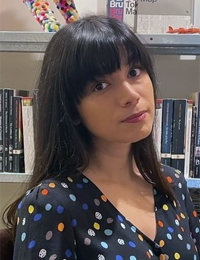
Dr Sara Crouch
Sara Crouch’s research interests include skin studies, medical history, and disability studies, with a focus on the way these disciplines intersect to generate new ways of thinking about the eighteenth-century novel in English. She has a particular interest in the writings of Frances Burney, John Cleland, Maria Edgeworth, and Tobias Smollett. Her doctoral thesis examined the ways in which medical discourse and scientific understanding and misunderstanding shaped attitudes towards human skin during the long eighteenth century in England, and how these in turn encoded the representation of character and the development of form and genre. She has published on the representation of sex work, maritime borders, and the stigmatised sexual touch in Medical History (2019) and on Burney’s representation of scarring and disability in Textual Practice (2020).
Email: sarafernandes.crouch@unimelb.edu.au
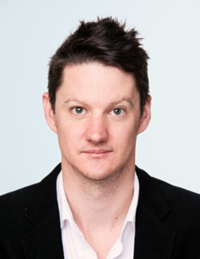
Dr Thomas H. Ford
Lecturer in English, School of Humanities and Social Sciences, La Trobe University
Thomas Ford’s work focuses on poems and other texts from Romanticism and the long eighteenth century. He reads this archive in the historicist traditions of philological materialism, and in light of the transdisciplinary imperatives of the environmental humanities. Ford calls this approach ‘ecophilology’ (a discipline that explores the role of textual environments in various settings, in all kinds of media, from the ancient cave drawings and graffiti to the contemporary electronic media). You can read about it in his book, Wordsworth and the Poetics of Air (Cambridge University Press, April 2018).
Email: T.Ford@latrobe.edu.au
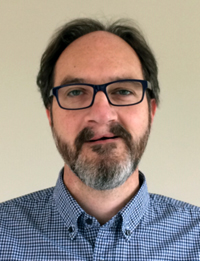
Dr Sean Gaston
Visiting Scholar, Wolfson College Oxford (2017-2018), Emeritus Reader in English, Brunel University, London, and Honorary Research Fellow, the University of Melbourne
I am exploring ‘the eighteenth century origins of modernity’. I have focused on concepts of disinterest, sympathy and pity, as well as fictions of imprudence and the invention of the literary character. I am now working on concepts of world in British Romanticism, Revolutionary America and the ‘Atlantic World’.
Email: gastons@unimelb.edu.au
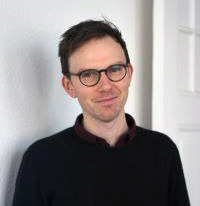
Dr Ben Gook
Lecturer in Cultural Studies, School of Culture and Communication, the University of Melbourne
Ben Gook’s current research focuses on alienation and disaffection in contemporary culture (post-1989). He has written on emotions and affects (melancholy, ecstasy and ambivalence), Germany (social, cultural, economic and psychic history) and Australia (postcolonial cinema). His book Divided Subjects, Invisible Borders: Re-unified Germany after 1989 (Rowman & Littlefield International, 2015) is a psychoanalytically informed study of the complicated process of re-unifying Germany after the Fall of the Berlin Wall. He has forthcoming publications on collectivity, transindividuality, libidinal economy and alienation.
Email: benjamin.gook@unimelb.edu.au
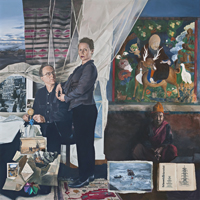
Professor Charles Green
Professor of Contemporary Art, School of Culture and Communication, the University of Melbourne
Charles Green is an authority in contemporary international and Australian art, on biennials and exhibition histories, and on artist collaborations. His books include Biennials, Triennials and Documenta: The Exhibitions that Created Contemporary Art (2016, co-authored with Anthony Gardner), The Third Hand: Artist Collaborations from Conceptualism to Postmodernism (2001), and Peripheral Vision: Contemporary Australian Art 1970-94 (1995). He has been awarded several ARC grants and was Adjunct Senior Curator of Contemporary Art at the National Gallery of Victoria (2001-2006), leading large curatorial teams who produced major exhibitions, including the inaugural, museum-wide installation of modern and contemporary Australian art at NGVA Federation Square (Fieldwork, 2001) as an outcome of an ARC Large Grant. He is also an artist, having worked in collaboration with Lyndell Brown as one artist since 1989; their works are in most Australian art museum collections and they were Australia’s Official War Artists in Iraq and Afghanistan in 2007.
Email: c.green@unimelb.edu.au
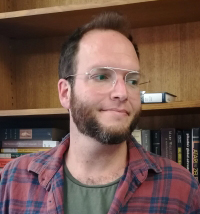
Dr Elias Greig
Elias Greig’s work considers the interaction between artistic and political representation, with a particular interest in the effects of democracy on literary form, from the eighteenth century to the present.
Email: elias.greig@unimelb.edu.au
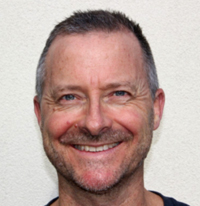
Dr Steven Hampton
Monash University
Steven Hampton continues to inhabit two distinctly separate worlds: firstly, research into the multilingual and transnational nature of cultural and literary production during the eighteenth and nineteenth centuries in Europe, in particular the interrelations between literatures in English, French and German, with a focus on the national epic as it was reconstructed, rediscovered or invented during the Age of Revolutions. Secondly, the hands-on design and construction of complex computer software systems for educational institutions in the present day, including the use of artificial intelligence. Both of these worlds require the application of critique, creativity and comparison but find their deepest synergies in the invention, discovery and construction of "actual, mixed and virtual realities".
Email: steven@stevenhampton.com
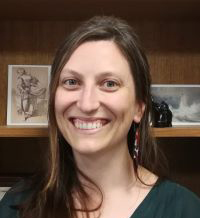
Dr Alexandra Hankinson
Alexandra Hankinson’s research focuses on the literary and cultural history of biological thought and phenomena from the Enlightenment to the present. Her doctoral thesis explored the cross-section between figurative and scientific thought in the botany and zoology of the long eighteenth century, with emphasis given to the way in which observation and analogy came together in this period to uncover and explain the affinities of living objects. She has published on the poetic and scientific history of insect pollination in Romanticism (2019) and is currently working on an online exhibition for the Romantic Circles Gallery of Visual Culture on hybrid and interspecific relationships. Her present research interests include the co-functioning of art and science in the discovery and description of camouflage and mimicry; histories of biodiversity and ecology in Australia; field notes; imaginative and scientific responses to avian migration; and seasonality and harvest in Romantic art and literature.
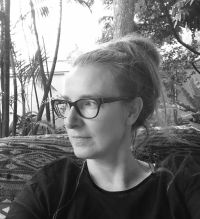
Dr Jodi Heap
School of Culture and Communication, the University of Melbourne
Jodie’s research focuses on Western philosophical conceptions of the imagination and the imaginary from Aristotle to Castoriadis. Her PhD thesis, titled The Imagination. The Seed of Indeterminacy in the Writings of Kant, Fichte and Castoriadis, offered a scholarly elucidation of the notion of the imagination and the imaginary as well as provided a new way of thinking about the imagination as an embodied power of formation and of creation fundamental to both the ontology of being and of ways of being. Her area of research also explores the role of the imagination and the imaginary in relation to the concepts of creation and creativity, and in relation to creative forms of thinking and of practice, both at the level of the individual and society. Jodie has a particular interest in the ERCC project ‘Creativity, Critique, Innovation’ and has contributed to the ERCC seminar series in her seminar titled, Unleashing the Creative Imagination in the Domains of the Humanities, Science and Art.
Email: jodie.heap@unimelb.edu.au

Dr James Jiang
School of Culture and Communication, the University of Melbourne
James Jiang’s research traces the residues of Romantic thought in modern and contemporary British and American writing. His recent articles on William James and Marianne Moore draw out the implications for literary modernism and philosophical pragmatism of concepts such as style and character – concepts which assume their modern shape in the late eighteenth and early nineteenth century. James is currently at work on a project entitled Sage Modernism that explores the intersection between pragmatist poetics and therapeutic culture.
Email: james.jiang@unimelb.edu.au
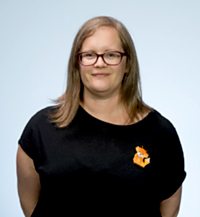
Dr Claire Knowles
Senior Lecturer in English Literature, La Trobe University, Melbourne
Claire Knowles has published numerous articles on eighteenth- and nineteenth-century women writers. Her book, Sensibility and Female Poetic Tradition, 1780-1860: The Legacy of Charlotte Smith, was published by Ashgate in 2009 and she also recently edited, with Ingrid Horrocks, Charlotte Smith: Major Poetic Works (Broadview, 2017.) She is currently working on a project on newspaper poetry and popular literary culture in the Romantic period titled, "Romanticism, Newspapers, and the Democratization of Poetry, 1785-1810."
Email: c.knowles@latrobe.edu.au
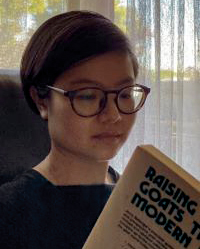
Dr Scarlet Luk
Scarlet Luk’s work toggles between two somewhat distinct lines of inquiry: the intersection between narrative and queer/trans theory, and more recently, the relationship between financialisation and critical race and migration studies in the transpacific. She hopes to one day reconcile the two. Since completing her PhD at Yale, Scarlet has been daylighting as a high school English teacher.
Email: luk.scarlet@gmail.com
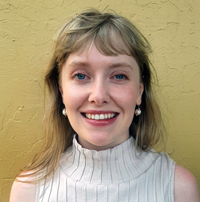
Dr Elizabeth McLean
School of Culture and Communication, the University of Melbourne
Elizabeth McLean’s research ranges from the Romantic period through to the contemporary, with a strong focus on processes of fictionality and genres of storytelling. She received her PhD in 2019 for her thesis, “The Topographical Parenthesis: Articulations of Space in the Novels of Henry James.” She is currently working on a trans-historical account of women’s literary journalism from the Enlightenment through to the present. This study is structured by four discrete episodes, that each present a composite of ideological and technological transformations vital to the professionalisation of literariness, journalism, and female authorship. These periods are: 1780s; 1890s; 1970s; Now. In a period of precarity for practitioners of both journalism and literary studies, this study looks to the late eighteenth century, and specifically to reportage of the French revolution, for a pre-history of the interdisciplinary form of literary journalism. In its veneration of both truth and form, literary journalism embodies the dualism of critique and creativity so essential to the relationship between Enlightenment and Romantic ideologies.
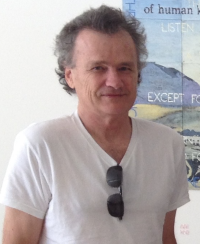
Professor Ian McLean
Hugh Ramsay Chair of Australian Art History, the University of Melbourne
Ian McLean has published extensively on Australian art and particularly Indigenous art. Since the late eighteenth century the Australian colonies have been a privileged site of Enlightenment endeavours in science, art and literature – as Bernard Smith convincingly discussed in European Vision and the South Pacific (1960). As a student of Smith, Ian’s research has consistently explored the shadow of the Enlightenment in Australia and its histories.
Email: i.mclean@unimelb.edu.au

Dr Matthew Martin
Lecturer in Art History and Curatorship, School of Culture and Communication, the University of Melbourne
Matthew Martin is an art historian and curator whose current research interests focus on the cultural aesthetics of porcelain in eighteenth-century Europe. He is particularly interested in the intersections between art history and the history of the chemical and geological sciences reflected in artworks produced by eighteenth-century European court porcelain manufactories.
Email: mmartin1@unimelb.edu.au
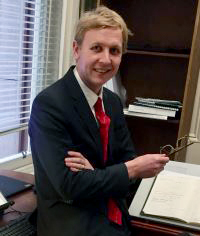
Dr David Mence
Honorary Associate, School of Culture and Communication, the University of Melbourne
David Mence is passionate about the political thought of the Enlightenment. He has a particular interest in social contract theory (as variously formulated by Hobbes, Locke and Rousseau) and notions of Atlantic Republicanism. He is currently working on a book for Oxford University Press on the Federalist politics of Herman Melville (Enlightenment at Sea: Melville’s Maritime Politics). He completed his doctoral thesis at the University of Melbourne under the supervision of Professor Peter Otto.
Email: dmence@unimelb.edu.au
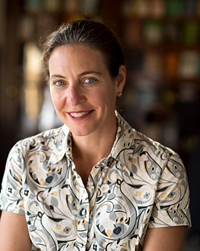
Professor Jennifer Milam
Research Associate, Enlightenment, Romanticism, and Contemporary Culture Research Unit, Faculty of Arts, the University of Melbourne; Pro Vice-Chancellor Academic Excellence, the University of Newcastle, Australia
Jennifer Milam’s research interests focus on understanding how the visual arts during the eighteenth century expressed philosophical ideas that rivalled the exposition of Enlightenment concepts in texts. Arguably what changed from the mid-eighteenth century onwards was broader exposure to ‘big ideas’ in visual form. Enlightenment ideas enjoyed wider circulation and cultural uptake through public exhibitions of art works that engaged audiences in interpretive response to aspects of the Enlightenment project. As a former Co-Director of the Enlightenment, Romanticism, and Contemporary Culture Research Unit (ERCC), Milam used her expertise in exactly this area to provide input into the research program of the ERCC by keeping this aspect of the Enlightenment in focus and elaborating upon its legacy in the contemporary culture sector.
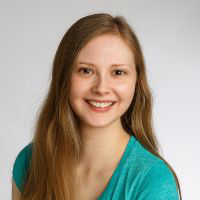
Dr Sonja Molnar
Lecturer in Media and Communications, the University of Melbourne
Sonja Molnar received her PhD in English Applied Linguistics from the University of Salzburg, where she taught courses on media discourse for six years. Thereafter she was a postdoctoral research assistant at the Vienna University of Economics and Business. Her main research areas include advertising discourse, sustainability communications, multimodality, and media linguistics. Her doctoral dissertation, which explores the verbal and visual changes in British, American and Australian print advertisements from the late seventeenth century to the present, will be published as part of the series Routledge Studies in Multimodality in 2021. Her current research project examines how environmental news is communicated in the mainstream media.
Email: sonja.molnar@unimelb.edu.au
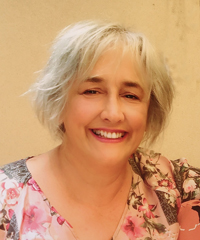
Professor Angela Ndalianis
Director, Centre for Transformative Media Technologies, Swinburne University of Technology
Angela Ndalianis is a Research Professor of Media and Entertainment, and Director of the Centre for Transformative Media Technologies at Swinburne University of Technology. Her research takes an interdisciplinary approach to entertainment media technologies, their histories and how they mediate our experience of the world – on embodiment, the senses and perception. Her publications include Neo-Baroque Aesthetics and Contemporary Entertainment (2004), Science Fiction Experiences (2010), The Horror Sensorium: Media and the Senses (2012); and the edited books – The Contemporary Comic Book Superhero (2009); Neo-baroques: From Latin America to the Hollywood Blockbuster (co-edited, 2016); Fans and Videogames: Histories, Fandom, Archives (co-edited, 2017), and The Superhero Symbol (co-edited, 2019).
Email: andalianis@swin.edu.au
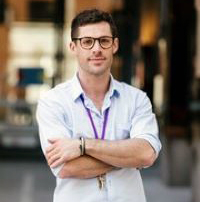
Dr Philip Pond
Lecturer in Digital Media Research Methods, the University of Melbourne
Philip Pond specialises in the study of software systems and their influence on the production of meaning, especially in politics. He is lead investigator on a Special Research Initiative investigating the relationship between between digital media and tendency for conversations to become extreme quickly and, more broadly, he investigates the relationship between digital speed and destabilising communication. He is author of two books. Digital Media and Making of Network Temporality (2021) explains how time can be reconfigured in digital systems with disruptive consequences. Complexity, Digital Media and Post-Truth Politics (2020) proposes a framework for studying destabilising interactions between the digital and political systems.
Email: ppond@unimelb.edu.au
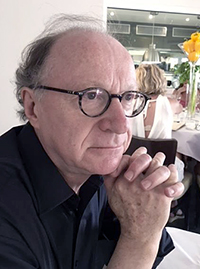
Associate Professor John Rundell
Principal Fellow, School of Culture and Communication, the University of Melbourne and Adjunct Professor in Philosophy, La Trobe University, Melbourne
John Rundell’s research focuses on the problems of the imagination, creativity and modernity. As ERCC Research Fellow he is especially interested in the themes of ‘Critique, Creativity, Comparison’ and ‘Worldiness, Cosmopolitanism, Globalisation’. His publications include Origins of Modernity; Imaginaries of Modernity; Aesthetics and Modernity Essays by Agnes Heller; Rethinking Imagination (with Gillian Robinson); Blurred Boundaries(with Rainer Bauboeck), and ‘Creating Social Theory: Enlightenment, Romanticism, Revolution’ in The Handbook for Social Theory edited by George Ritzer and Barry Smart. He is currently completing a book on the work of Immanuel Kant entitled Kant and Critical Theories before turning to another entitled The Creative Imagination: From Kant to Castoriadis and Beyond.
Email: johnfr@unimelb.edu.au
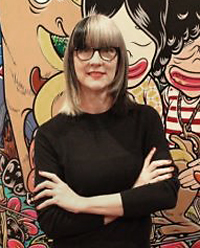
Dr Sarah Tiffin
Sarah Tiffin’s research focusses on depictions and descriptions of Southeast Asia in British art and creative literature of the seventeenth to nineteenth centuries. Formerly a Curator of Asian Art at the Queensland Art Gallery | Gallery of Modern Art, Sarah is the author of Southeast Asia in Ruins: Art and Empire in the Early 19th Century (2016) which explores how British picturesque imagery of ruined candi, pagodas and wats contributed to the networks of knowledge critical to imperial enterprise. She continues to publish on British ideas about ruins and ruination, and is also currently working on a study of the upas or poison tree of Java and its appearance in British art and literature over the long 19th century.
Email: sarahtiffin@bigpond.com
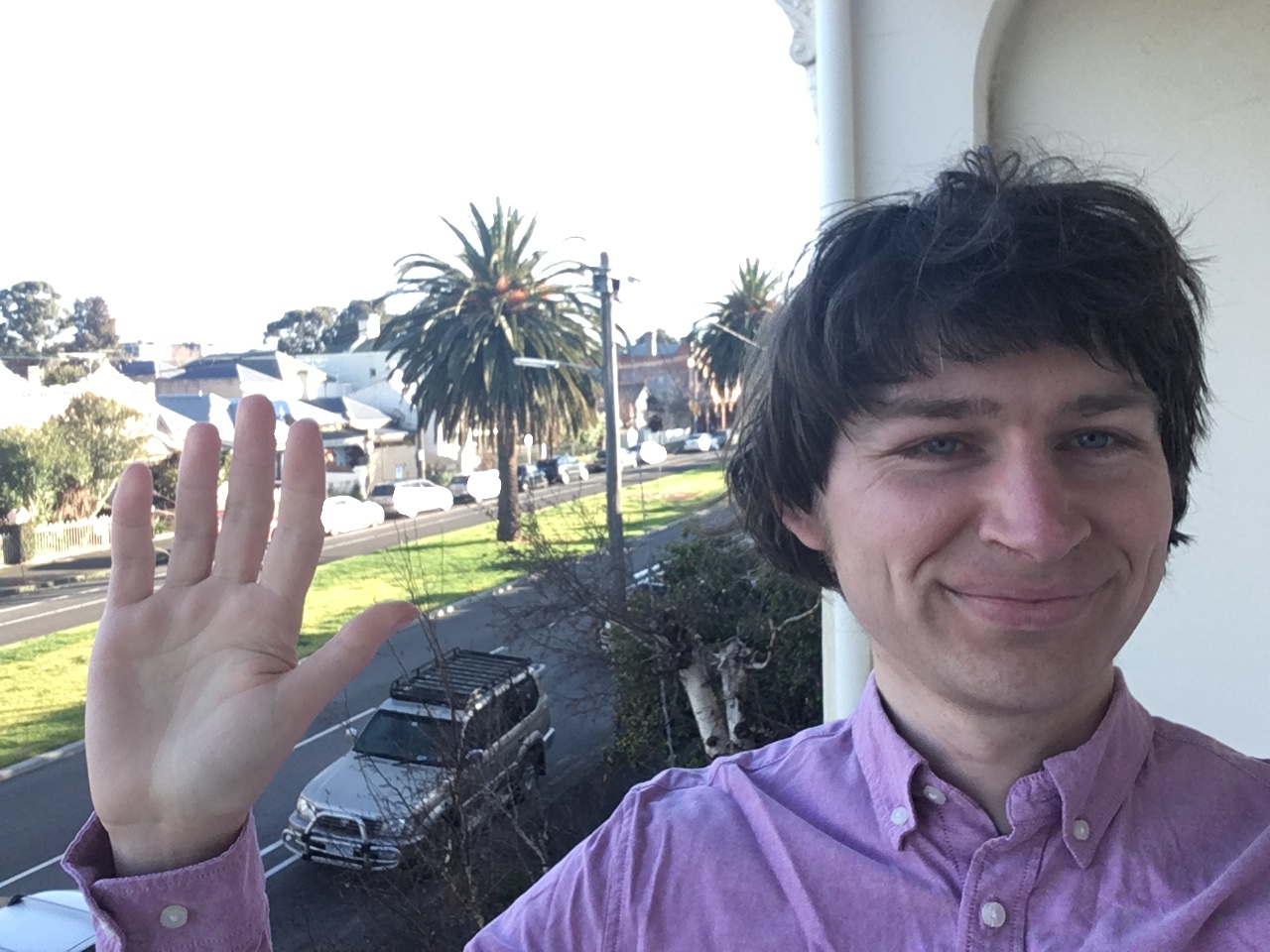
Dr Thomas Vranken
School of Pacific Arts, Communication and Education, University of the South Pacific
Thomas Vranken is Lecturer in Literary Studies at the University of the South Pacific (Laucala Campus, Suva, Fiji). With Suzy Anger, he is currently editing Victorian Automata: Mechanism and Agency in the Nineteenth Century (Cambridge University Press, 2023). He is the author of Simulating Antiquity in Boys’ Adventure Fiction: Maps and Ink Stains (Cambridge University Press, 2022), and Literary Experiments in Magazine Publishing: Beyond Serialisation (Routledge, 2020). Between 2019 and 2021, he was a Killam Postdoctoral Research Fellow at the University of British Columbia. He completed his PhD at the University of Melbourne in 2017.
Email: thomas.vranken@usp.ac.fj
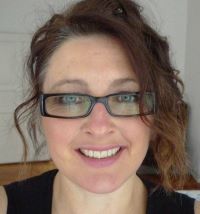
Jennifer Wawrzinek
Dr Phil Habil Jennifer Wawrzinek
Freie Universität Berlin
Jennifer Wawrzinek’s research focuses on the intersections between the political and the ethical in literature and culture of the Romantic and post-Romantic eras. She recently completed a monograph entitled Beyond Identity: Romanticism and Decreation, which investigates modes of decreation in British Romanticism as a response to the political and ethical crises of the late-eighteenth and early-nineteenth centuries. Jennifer recently edited, together with Lisa O’Connell (UQ), a special issue of the journal Postcolonial Studies which investigated the ways in which global movements and colonial contact in the long eighteenth century can be seen to have transformed or reinvented European literature and culture of the period. She is currently developing a new research project which aims to investigate Romantic models of relationality in which (human) being is conceived as embedded within a world that is not only biological, but techno-ecological as well. This project is particularly interested in the human-animal-machine formations of William Blake.
Email: j.wawrzinek@fu-berlin.de